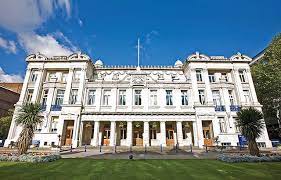Queen Mary University of London: Queen Mary students provide valuable insight into European superyacht industry
The students were supervised by Dr Garry A. Gabison, Senior Lecturer of Law, Economics and Regulation at Queen Mary.
The industry has long been difficult to assess from a financial standpoint, as most companies are privately held and discreet in their activities.
The findings have shown some of the direct impact that superyachts can have on local economies from building to servicing these superyachts. For example, German and Dutch shipyards build large superyachts in Europe but Spanish and French marinas provide ancillary services.
These direct economic impacts are only the tip of the iceberg. The economic benefits go beyond superyachts’ production and crewing. This glamourous industry creates opportunity for local economies either through maintenance or tourism, with local workers plugging the gap. Superyacht chartering also provides a boost to local businesses through the charterers’ off-board expenses.
One surprising finding is that while the Covid-19 pandemic has impacted the sector, the effects have been less severe than experts might expect. The economic activities in the area have been relatively consistent and a source for optimism.
The MYBA provided the Centre for Commercial Law Studies with two bursaries to support two students in their studies.
The project included a literature review on superyachts, interviews with numerous industry stakeholders, as well as gathering and examining microeconomic data.
Dr Garry A. Gabison, Senior Lecturer of Law, Economics and Regulation, said: “I’m extremely proud of Katharina and Benedikt, who have worked diligently to complete this research project.
“In such an opaque industry, Katharina and Benedikt manage to fill some of the knowledge gap in assessing the sector’s contribution to the European economy.
“Their work would not have been possible without the bursaries provided by MYBA, who we would like to thank for the opportunity. They have provided unprecedented access to our students and yet gave them the freedom to write an independent study.”

